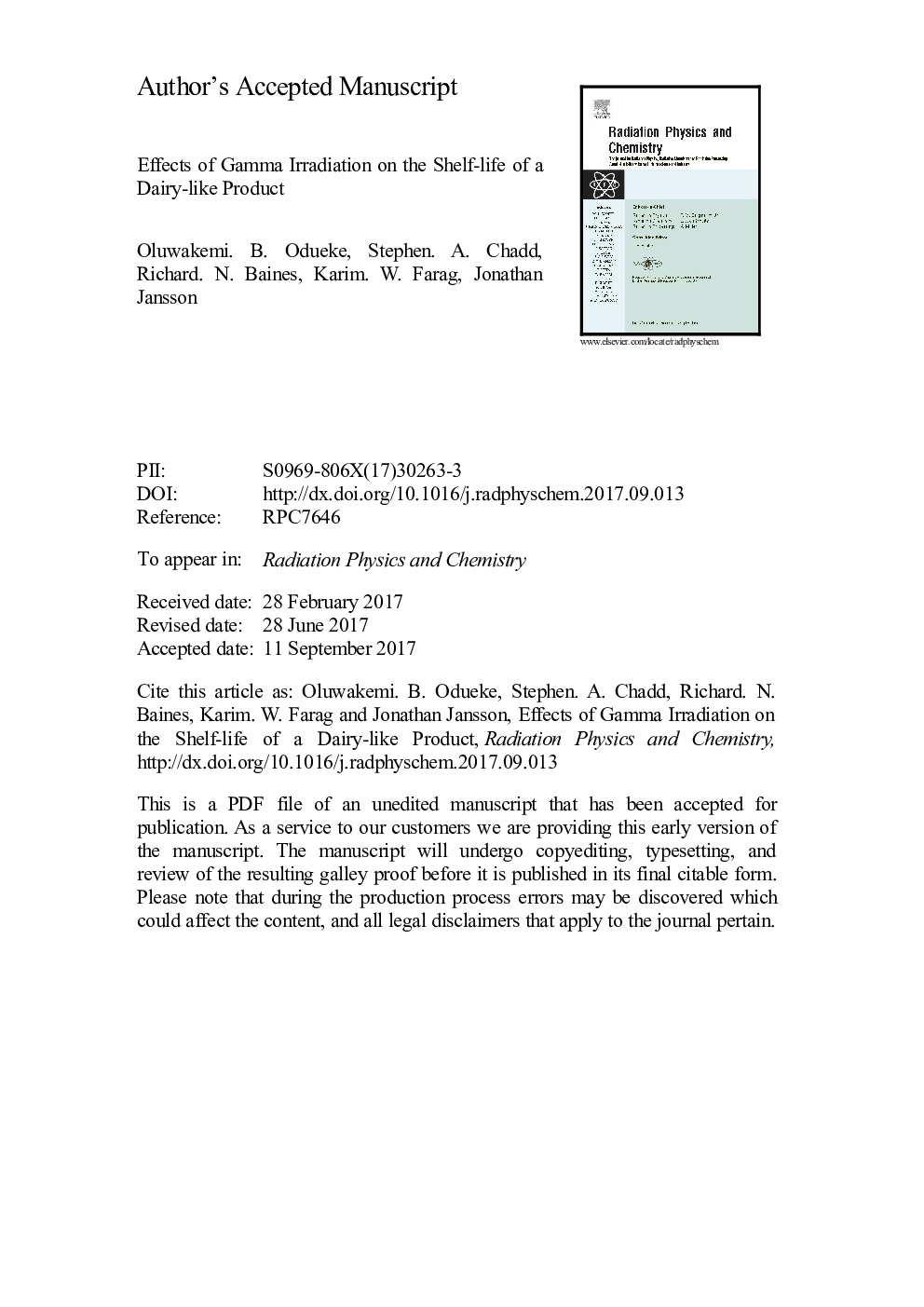| Article ID | Journal | Published Year | Pages | File Type |
|---|---|---|---|---|
| 8251661 | Radiation Physics and Chemistry | 2018 | 38 Pages |
Abstract
This study was aimed to assess the effect of irradiation on the shelf-life of pseudo-dairy food product consisting of different concentration levels of the structural and energy-giving caloric component macronutrients (protein, fat and carbohydrate). Gamma irradiated products (1 kGy, 3 kGy, 5 kGy and 10 kGy) were compared to the current procedure used by the industry of non-irradiated dairy products. The study looked at the impact of different treatments on storage quality in respect to physicochemical (pH, acidity, macronutrients), and microbiological properties [total viable count (TVC)]. The products were aseptically packaged in plastic containers and analysed at regular weekly intervals up until 100 days during refrigerated storage at 4 ± 1 °C. The storage period did not bring about any significant change in physicochemical properties of the products throughout the period of study while the TVC displayed a linear regression for irradiated products stored at 4 ± 1 °C as well as the control (non-irradiated). At the end of the shelf-life trial (benchmarked at log 4.3 CFU/g), the total viable count did not exceed log 3.94 CFU/g for samples treated at 10 kGy after 100 days of analysis. These observations indicated that the product could be safely stored aerobically for > 100days (10 and 5 kGy), 56days at (3 kGy), 42 days at (1 kGy) for the irradiated samples' and 14-28 days for the non-irradiated samples without much change in physicochemical and microbiological properties using refrigerated storage.
Related Topics
Physical Sciences and Engineering
Physics and Astronomy
Radiation
Authors
Oluwakemi B. Odueke, Stephen A. Chadd, Richard N. Baines, Karim W. Farag, Jonathan Jansson,
